Week 37 of Your Pregnancy: Care Instructions
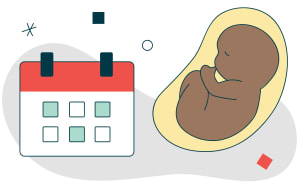
Most babies are born between 37 and 40 weeks.

This is a good time to pack a bag to take with you to the birth. Then it will be ready to go when you are.
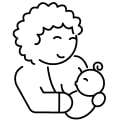
Learn about breastfeeding. For example, find out about ways to hold your baby to make breastfeeding easier. And think about learning how to pump and store milk.

Know that crying is normal. It's common for babies to cry 1 to 3 hours a day. Some cry more, and some cry less.
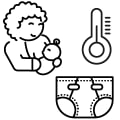
Learn why babies cry. They may be hungry; have gas; need a diaper change; or feel cold, warm, tired, lonely, or tense. Sometimes they cry for unknown reasons.

Think about what will help you stay calm when your baby cries. Taking slow, deep breaths can help. So can taking a break. It's okay to put your baby somewhere safe (like their crib) and walk away for a few minutes.

Learn about safe sleep for your baby. Always put your baby to sleep on their back. Place them alone in a crib or bassinet with a firm, flat surface. Keep soft items like stuffed animals out of the crib.
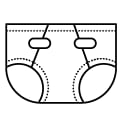
Learn what to expect with newborn poop. Your baby will have their own bowel patterns. Some babies have several bowel movements a day. Some have fewer.
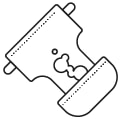
Know that breastfed babies will often have loose, yellow bowel movements. Formula-fed babies have more formed stools. If your baby's poop looks like pellets, your baby is constipated.
Follow-up care is a key part of your treatment and safety. Be sure to make and go to all appointments, and call your doctor or nurse advice line (811 in most provinces and territories) if you are having problems. It's also a good idea to know your test results and keep a list of the medicines you take.
Where can you learn more?
Go to https://www.healthwise.net/patientEd
Enter N257 in the search box to learn more about "Week 37 of Your Pregnancy: Care Instructions".
Current as of: April 30, 2024
